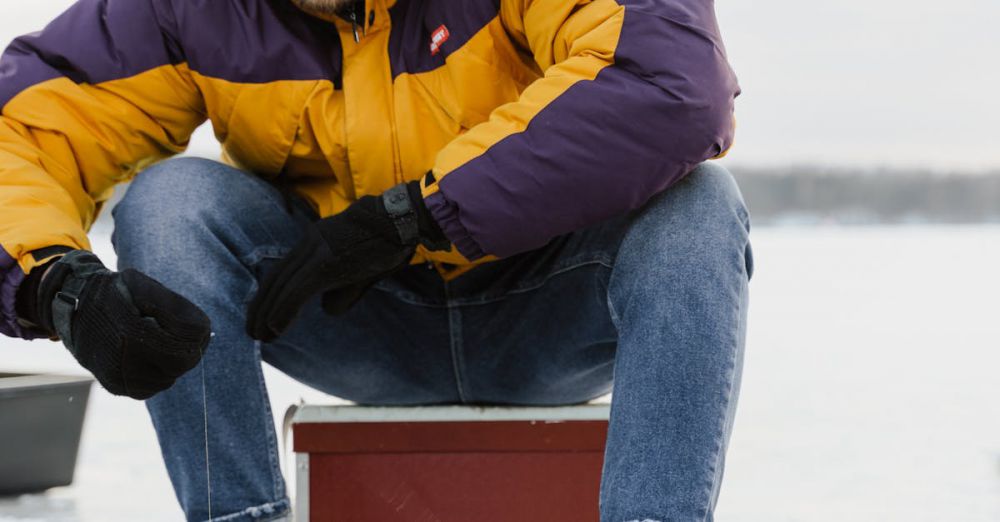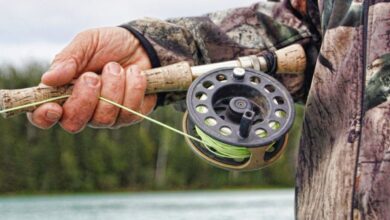Can You Ice Fish in All of Canada
Ice fishing is a cherished pastime for many Canadians, transforming frozen lakes into vibrant hubs of seasonal activity. This unique form of angling offers both tranquility and excitement as enthusiasts brave the cold to reel in their catch. However, the question arises: can you ice fish in all of Canada? The answer is as varied as the country’s geography and climate.
Understanding Regional Variations
Canada boasts an impressive range of climates, from the icy tundra of the North to temperate regions in the South. These varying conditions significantly influence ice fishing opportunities. In the northern territories, ice typically forms early in the season and can last well into spring, allowing for an extended period of fishing. Conversely, in coastal areas like British Columbia, mild winters may yield thinner ice, leading to a shorter ice fishing window or even making it impractical altogether.
Ice fishing is particularly popular in provinces like Ontario, Quebec, and Manitoba, where numerous lakes freeze solidly each winter. These regions host ice fishing festivals, drawing anglers from afar. In contrast, the milder maritime provinces and some areas of the West Coast may not provide sufficient ice thickness for safe fishing. Therefore, the first determining factor in whether you can ice fish is the local climate and ice conditions.
Regulations and Licensing
Before grabbing your gear and heading out onto the ice, it’s essential to understand the regulations in your specific province or territory. Canada has a patchwork of laws governing ice fishing, which can differ significantly from one location to another. Most provinces require anglers to possess a fishing license, and many have specific rules regarding the types of fish that can be caught, size limits, and the number of rods allowed.
In some areas, ice fishing is subject to seasonal restrictions, ensuring fish populations remain sustainable. For instance, certain lakes may be closed to ice fishing during spawning seasons. Regulations also vary in terms of bait usage and equipment. Some regions may allow only specific types of bait, while others impose restrictions on the use of devices like fish finders or underwater cameras. It’s crucial to familiarize yourself with these rules to avoid penalties and contribute to conservation efforts.
Safety Considerations
While ice fishing can be exhilarating, safety should always be the top priority. The thickness of ice can vary greatly depending on the location and recent weather conditions. In general, a minimum of four inches of clear ice is recommended for foot traffic, while at least eight to twelve inches is advisable for snowmobiles or ATVs. It’s wise to check local reports or consult with experienced anglers about the safety of the ice before venturing out.
Additionally, wearing appropriate clothing and gear is vital. Layering is key to staying warm, as temperatures can drop significantly, particularly in remote areas. Don’t forget to bring safety equipment such as ice picks, a flotation device, and a first-aid kit. Being prepared can make all the difference in ensuring a safe and enjoyable ice fishing experience.
The Joy of Ice Fishing Across Canada
Ice fishing is not just about the fish; it’s about the experience. From the serene beauty of a snowy landscape to the camaraderie of fishing with friends, this winter activity captures the essence of Canadian culture. Many anglers partake in traditional methods, using hand augers and tip-ups, while others embrace modern technology, enhancing their chances of success.
While not every region in Canada is suitable for ice fishing, those that are offer a rich tapestry of experiences, including breathtaking scenery, the thrill of the catch, and the chance to connect with nature. Whether you’re an experienced angler or a curious beginner, exploring the icy waters of Canada can lead to unforgettable memories.
Exploring Your Ice Fishing Opportunities
Ultimately, whether you can ice fish in Canada depends largely on where you are. Researching local ice conditions, understanding regulations, and prioritizing safety will ensure you make the most of your ice fishing adventures. With a bit of preparation and a sense of adventure, you can dive into the frozen lakes and experience the unique thrill of ice fishing across this beautiful nation.







